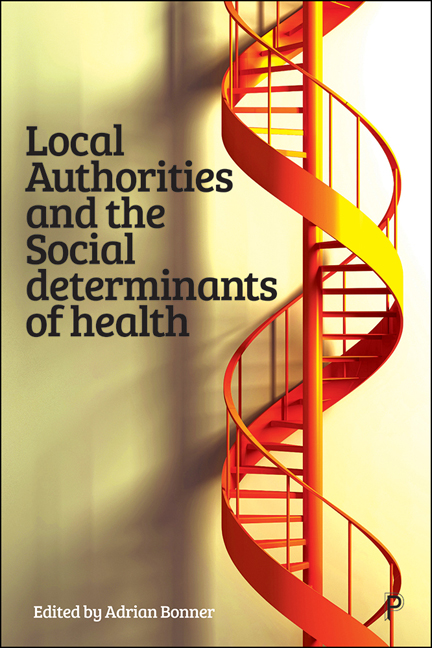Book contents
- Frontmatter
- Dedication
- Contents
- List of Figures, Tables and Boxes
- Notes on Contributors
- Acknowledgements
- Foreword
- Summary
- Introduction: Key Sociopolitical Changes Affecting the Health and Wellbeing of People
- Part I Health, Social Care and Community Wellbeing
- Part II The Role of Local Authorities in Promoting Health and Wellbeing in the Community
- Part III Local Authority Commissioning
- Part IV The Third Sector
- Part V Socio-Economic Political Perspectives
- Conclusion
- Appendix: COVID-19 Timeline
- Index
15 - Future Generations: The Role of Community-Based Organisations in Supporting Young People
Published online by Cambridge University Press: 25 March 2021
- Frontmatter
- Dedication
- Contents
- List of Figures, Tables and Boxes
- Notes on Contributors
- Acknowledgements
- Foreword
- Summary
- Introduction: Key Sociopolitical Changes Affecting the Health and Wellbeing of People
- Part I Health, Social Care and Community Wellbeing
- Part II The Role of Local Authorities in Promoting Health and Wellbeing in the Community
- Part III Local Authority Commissioning
- Part IV The Third Sector
- Part V Socio-Economic Political Perspectives
- Conclusion
- Appendix: COVID-19 Timeline
- Index
Summary
Introduction
In 2020, there is a reported high level of employment in the United Kingdom (UK). However, there are major concerns regarding high levels of youth unemployment in many parts of the UK. The recent COVID-19 global pandemic is only likely to exacerbate this challenge as ‘experts predict the coronavirus pandemic will trigger the worst economic slump since the Great Depression of the 1920s’ (Stubley, 2020).
Regional differences, across Wales, Scotland and England (see Chapters 5, 6, 7, 9 and 21) in youth unemployment and other demographic factors, including race and disability, are issues that need to be considered by local and national governments. This chapter presents two non-statutory approaches aimed at engaging young people in the community.
The Youth United Foundation (YUF) supports the development of well-established community-based organisations including the Scouts, Guides and Boys’ Brigade joined, recently, by the creation of new uniformed youth organisations, including Fire and Police Cadets, to help significantly increase opportunities for young people from the most disadvantaged communities.
For many young people, the local high street provides a safe meeting place for young people, who can no longer ‘hang out’ in the youth clubs of past years. However, with the demise of the traditional high street major challenges are presented to local authorities, which increasingly rely on generating business rates from hard-pressed shops under threat from the tidal wave of online retailing.
Building on the place-based policies of the London Borough of Sutton (see Chapter 6), Sutton Community Dance (SCD) is an example of reimagining the high street and prioritising shared places as an important context for building intergenerational bridges. Such a model of reimagination and creative agility will be critical in helping already challenged town centres to develop new possibilities for reform post the COVID-19 pandemic. This all-age inclusive development makes a significant contribution to the social determinants of health in this South London borough, through improvements in health and wellbeing (see Bonner, 2018, part 2) and the promotion of selfactualisation (see Chapter 1 in this volume).
Reductions in youth services
An important consequence of central government austerity budgeting and restrictions in funding available to local authorities is the 18 per cent drop in council spending on young people's services.
- Type
- Chapter
- Information
- Local Authorities and the Social Determinants of Health , pp. 283 - 300Publisher: Bristol University PressPrint publication year: 2020



